- Home
- Parnell Hall
Detective (Stanley Hastings Mystery Book 1) Page 3
Detective (Stanley Hastings Mystery Book 1) Read online
Page 3
I stopped talking. He looked at me. He’d been looking at me the whole time I was talking, and his expression didn’t change when I stopped. He just kept looking at me. It was hard to read his expression. He looked a little like a steer must when it’s just been hit over the head with a sledgehammer at the slaughterhouse. Incredulous. Disbelieving. But something else, too. He blinked his eyes. His lips moved, but nothing came out. Then he said, almost in awe, “You’re useless.” He shook his head. “Jesus Christ, you’re absolutely useless, aren’t you.”
He got to his feet as if in a daze and started for the door, still shaking his head. “Useless,” he muttered. He opened the door and went out. The door closed behind him.
I sat there as his steps faded away down the corridor.
3.
I LIVE IN A TWO-BEDROOM apartment on the upper west side of New York—five and one-half rooms for 750 a month. People always tell me that’s really cheap. Of course, they aren’t paying it. I have to scrabble for the rent, and at ten bucks an hour and thirty cents a mile, it isn’t easy. See, I don’t get paid for an eight-hour day; I only get paid when I’m on a case, and some days are slow. That’s why a nice signup in Brooklyn is a break, because I can turn it in as three or four hours on the clock, and a good thirty or forty miles round trip. Whereas a signup in Harlem is four miles, and a lot less time. The actual sign-up interview never takes me more than twenty to thirty minutes, tops. The travel time is where the bucks are. Give me three cases spread out in Brooklyn and Queens and I can charge for an eight- or nine-hour day and anywhere from fifty to a hundred miles. But give me a slow day and I won’t make squat.
Today, I hadn’t made squat. The signup in Brooklyn was all there was. It was on Flatbush Avenue right over the Manhattan bridge, which made it nothing in mileage, and a stretch even to call it three hours, which I sure as hell did, but that was it. And since I’d wasted so much time with. Albrect, I got started so late that I still didn’t get home till nearly six, in spite of only working a three-hour day.
My five-year-old son, Tommie, was waiting by the front door. He was wearing his baseball cap and his glove.
“Daddy!” he screamed, running to give me a hug. “Daddy! Daddy! Daddy!”
I picked him up and swung him around. “Hi, Tommie.”
“Daddy, can we play baseball?”
I hadn’t eaten since early morning. “Right after dinner.”
“No, now.”
“I’m hungry.”
“No, now.”
“After dinner.”
“It isn’t ready yet,” my wife, Alice, said, emerging from the bedroom. “Everything’s on the stove ready to go, but you didn’t call so I didn’t know how to time things.”
“Sorry, I should have called,” I told her. “How long will it be?”
“Well, we’re having chicken, rice, and asparagus. The rice will take a while, say forty-five minutes.”
I sighed, cursing myself for not calling. “O.K., Tommie, let’s go play baseball.”
“Yay, Daddy!”
“Go make a pee-pee while I change, and we’ll go to the park.”
“I already did.”
“Did he?”
“That was a while ago. Go again, honey.”
“Go make a pee and we’ll go to the park,” I told him.
He ran out of the room. I went into the bedroom and began to change out of my suit. I had a brief respite while my wife got things started on the stove, but everything must have really been ready to go, because in no time at all she came in to keep me company.
The problem with my wife, and it is a problem, is that she really likes me. At least that’s the impression that she gives, and I have no way to prove it false. And more than just liking me, she respects me. She thinks I’m intelligent, and capable, and worthy, and she wants the best for me. In short she drives me nuts.
The other part of the problem is I like her too. She’s a very nice person, and is generally pleasant and agreeable. That’s not to say she doesn’t have a temper—when provoked she can be a regular hellcat, and her sarcasm is a wonder to behold, but such outbursts are rare and always for good reason. But most of the time she’s just nice.
And that’s the trouble.
Take my job, for instance. If she simply bitched about how few hours I was getting, and how little money I was making, and how we couldn’t possibly live on it, that would be fine. I could give it right back to her and we could have screaming arguments of the type where everything gets said but nobody really gets hurt, and afterwards you feel better about it.
But my wife doesn’t do that. She doesn’t complain about how little I’m making. She sympathizes with me for making so little. She laments the fact that such a fine person as me should be stuck in such a dead-end job. She encourages me to quit the job and find something else. And she supports my decision, whatever it may be. The end result, of course, is just the same as if she had simply bitched and moaned, with the added aggravation that her position is invulnerable and I have nothing to complain about.
I have never been able to figure out if she is as naively nice as she seems, or if she knows she is driving me nuts. I have tried to discern this information by means of such subtle questions as, “Do you know you’re driving me nuts?” but they never result in any concrete answers, and only serve to lead the conversation through various detours, all of which eventually lead it back to the same thing.
My gut feeling is my wife must know what she’s doing. When she urges me to get out and find another job, she says things like, “You’re good with people,” which I take to mean that she thinks I am afraid of people, and have to be encouraged to go and meet them. She says, “You’re good on the phone,” which I hear as, “If you had the gumption to pick up the phone you might accomplish something.” She says, “You’re too good for this job,” which I hear as, “Why are you so lazy, and timid, and stupid that you can’t find something else?” But since she never says the things I hear, I can never answer her. The end result is I often want to strangle her.
“So how’d you do today?” she asked, as I hung my pants over a hanger and began to unbutton my shirt.
“A broken leg in Brooklyn. Three hours.”
Her face fell in dismay. “But it’s six o’clock.”
“It came in late.”
She shook her head. “Oh, Stanley,” she said, sympathetically. “How awful for you. To sit around all day long waiting and then wind up with three hours. This job. This awful job.”
“It’s not that bad,” I mumbled. I pulled on a T-shirt and began looking for my shorts.
“It’s not fair,” she persisted. “It’s not fair for them to keep you on call all day long, make you work overtime, and then only pay you for three hours.”
“It’s the nature of the job,” I told her.
A search had not revealed my shorts in the drawer. I headed for our bathroom to see if they had wound up in the hamper.
“It’s a terrible job,” she said, following me into the bathroom. “You’re such a talented writer. It just isn’t fair that you should—you’re not going to put those on, are you? They’re filthy.”
“They’re fine,” I told her, bringing the prized shorts out of the bathroom and putting them on, relieved that the subject had changed.
It didn’t stay changed. “I know I encouraged you to take this job,” she went on, “because we needed the money. But it was supposed to be temporary. I never would have suggested you take it if I thought it would turn into a deadend job. How long have you been doing it now, six months?”
I muttered something unintelligible and looked around for my sneakers.
“I was looking in the paper today,” she said. “I know there are no jobs for creative writers, but there are jobs in related fields. Editing. Advertising. Proofreading. Jobs where you could use your talents. Wouldn’t you rather be doing something like that?”
I discovered I was tying my shoelaces faster than one would have thoug
ht humanly possible. “They all require experience,” I said.
“And where do they expect you to get experience, that’s what I’d like to know? It’s Catch 22. You can’t get a job without experience, and you can’t get experience without having a job.”
Fully dressed, I fled for the foyer. Tommie was already there. I straightened his shorts, which he always manages to tug up crooked. He put his glove back on, took my glove out of the gym bag we use for equipment, and handed it to me, along with my baseball cap.
“Here, Daddy,” he said.
I put the glove and cap on. I’m originally from Massachusetts, so we wear Boston Red Sox caps, a bold move in New York City. I picked up the bag and opened the front door. Tommie went out and rang for the elevator.
My wife followed us to the door and stood there, holding it open and looking out into the hallway.
“I just feel so sorry for you,” she said, picking right up as if the conversation had been continuous, a habit I find disconcerting. “Working such long hours and not getting paid for them. I don’t know how you can take it. I mean, am I wrong, or how do you feel about it?”
The elevator arrived. I ushered Tommie in.
“Really,” she persisted. “How does that make you feel?”
“Useless,” I told her, and stepped into the elevator.
4.
I READ THE NEW YORK POST on the subway on my way to the office the next morning. I take the subway to the office because there’s no place to park in midtown Manhattan, at least no place cheap. I read the New York Post for the sports—they have the late baseball scores. At least, that’s what I tell my wife. Actually, it’s the closest you can come to reading the gossip mags without actually buying one. My wife buys the New York Times and makes fun of my taste, but the hell with her. She watches the soap operas, for Christ’s sake.
I was squashed against the express-side door of the Broadway downtown local by a large black man smoking a cigarette, and a fat woman with a handbag the size of a steamer trunk, when I found it. It was on page four, but that was just by luck. If a fairly prominent TV star hadn’t died the same day it might have made page one.
“BUSINESS EXEC MURDERED AND MUTILATED,” ran the headline. “The body of Martin Albrect, executive vice president of Fabri-Tec Inc., a prominent Manhattan firm, was discovered late last night in a midtown Manhattan parking lot. The body had been mutilated.”
The article did not elaborate on the specifics of the mutilation, but I could guess. The N.Y.P.D. must have been tactfully withholding the information that Mr. Albrect’s penis was in his mouth. That fact alone could have pushed the story up to page one. After all, the TV star had merely died of cancer and, in all probability, with his genitalia intact.
Despite the fact that I was crowded unmercifully in a stifling, non-air-conditioned subway car, I suddenly felt very cold. I also felt nauseous. I also found I was having trouble breathing, and it wasn’t just the clouds of cigarette smoke the large black man was spewing out in my direction. I also felt incredibly claustrophobic, and the fact that the article about the demise of Martin Albrect was continued on page thirty-two didn’t help. Getting from page four to page thirty-two seemed a Herculean task. My fingers felt numb and useless. Useless. I riffled the corners of the pages, located number thirty-two. I steeled myself for the effort of refolding the paper. I raised my arms aloft above the crush of shoulders, and began jockeying for the room to open the paper and fold it in on itself again.
The train pulled into the Times Square station, shoving me into two young businesswomen, one of whom said, “Hey!” and the other of whom said, “Shit!” I grunted, “I’m sorry,” as the express doors opened and the surge of commuters thrust me out the door onto the platform. Automatically, I turned and followed them up the platform toward the 42nd Street exit, folding my paper to page thirty-two as I went.
The police hadn’t released many facts about the incident, but there were some. The body had been found in a parking lot on Tenth Avenue near 47th Street. It was found around 2:00 A.M. by a young man and his date returning from a disco to pick up their car. The parking lot had been closed for hours. It was one of those outdoor lots where, for a few extra bucks, you could get a park-and-lock spot that wouldn’t be blocked after closing. The indications were that the murder had taken place somewhere else, and the body had been driven to the lot and dumped. Martin Albrect was described as a successful sales executive for Fabri-Tec Inc., a textile manufacturer with offices on West 40th Street. He was a bachelor and lived alone in his apartment on East 81st Street. He was not known to be linked in any way with organized crime.
I finished the article and discovered I was standing on the northwest corner of Broadway and 42nd Street. I felt instinctively for my wallet. By some miracle it was still there. This marked, I realized, the first time I had ever made my way through the Times Square subway station without transferring my wallet from my hip to my front pants pocket, and keeping my hand pressed firmly against it. I folded the paper, joined a stream of traffic, and headed uptown.
My office is just east of Broadway, Seventh Avenue—actually, on 47th Street, right in the diamond district. My father-in-law, years ago, had used the office as his principal place of business, selling plastic bags to the jewelers there. He jobbed the bags then, buying at dealer discounts from the large manufacturers, and then underselling them to their own customers. He made enough money doing it to expand his business. He manufactured the bags now, and had his own factory down on 30th Street. The 47th Street office was still carried on the company books as a business expense, but he rarely used it and, in one of those infrequent moments when he had almost believed I was going to be able to support his daughter by writing, he had offered it to me as a place to work. I’d been using it ever since, first for writing, and then as a base for my pseudodetective agency when writing revenues ran thin.
I waited the usual eternity for the elevator, rumbled up to the third floor, and walked down the narrow hall to my office. In crime novels, detectives always have doors with frosted glass, through which the vague outlines of slinky women can be seen hesitating in the hallway, before making up their minds to enter, or through which the sinister silhouettes of suspected gunmen tip off the hero to the threat of danger. My door was solid wood. A metal plaque on the door read: “STANLEY HASTINGS DETECTIVE AGENCY.” It covered up the original, old, hand-painted sign which read: “COHEN BAG CORP.” The plaque had been given to me by friends as a joke, and I had hung it on the door, partly as a joke, and partly, as I said, because I need to receive mail. The door had a small mail slot at the bottom, and when I opened the door I discovered the post had, indeed, come. Three pieces of junk mail. I let it lie there, closed the door behind me, and switched on the light.
The office was a small room with one window looking out over an air shaft. It was not the type of place that was conducive to entertaining clients, but then I had never had a client until Mr. Albrect had stumbled upon me the day before.
The office was furnished with two desks, three chairs, a typing table, and a file cabinet. One desk was where I did my writing. The other was where I ran my detective business. The typewriter, on wheels, served both masters.
The answering machine was on the detective’s desk. There were no messages, and for once I was glad. No messages meant no work, but I wasn’t ready for work yet. I slumped into the desk chair, and spread the newspaper out on the desk in front of me. I read the article again. It said the same thing it had the first time.
Martin Albrect was dead. He had come to me for help. I hadn’t helped him. Now he was dead. There was no other way to look at it. But I did my best to come up with one.
I hadn’t refused to help him, after all. I had merely pointed out why I wasn’t the best man he could have picked for the job. And he had agreed. Unhesitatingly, wholeheartedly agreed. Agreed so thoroughly that he had walked out, abandoning the thought of whatever small amount of help I might have been to him, and preferring to face
his crisis alone.
And I had toyed with him. Made fun of him. Made up stupid comic book names to ridicule his story. Amused myself with him. Done my damnedest not to take him seriously.
I felt I ought to do something, but what? In the first place it was none of my business. In the second place, there was nothing I could do. I could go to the police, I suppose, but what could I tell them? I had a story, but no names, no places, no facts. What was I gonna tell ’em, the guy who killed Albrect was probably Bambi or Pluto?
No, there was nothing I could do. And that was the problem. That was what was gnawing away at me. Because if I were a real detective, I could do something. I didn’t know what. But something. If I were a real detective, I’d at least know what I could do. But I wasn’t a real detective. I was a failed writer and successful ambulance chaser, who’d never had the gumption or the balls to be anything else. So there was nothing I could do.
And yet I really wanted to do something. It really mattered to me. Not for Albrect—Albrect was just a bungling clod who’d brought it on himself. No, I wanted to do it for me.

 Clicker Training
Clicker Training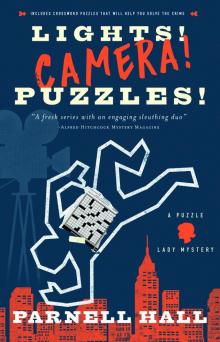 Lights! Camera! Puzzles!
Lights! Camera! Puzzles!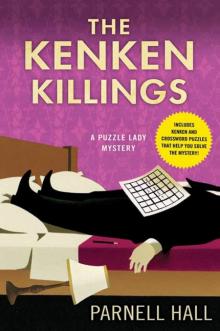 The KenKen Killings
The KenKen Killings 12-Scam
12-Scam The Puzzle Lady vs. the Sudoku Lady
The Puzzle Lady vs. the Sudoku Lady 2 Murder
2 Murder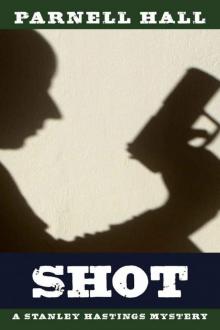 7 Shot
7 Shot You Have the Right to Remain Puzzled
You Have the Right to Remain Puzzled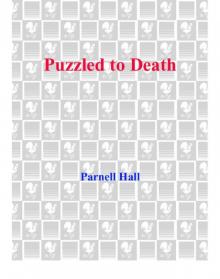 Puzzled to Death
Puzzled to Death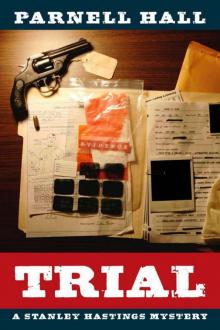 11-Trial
11-Trial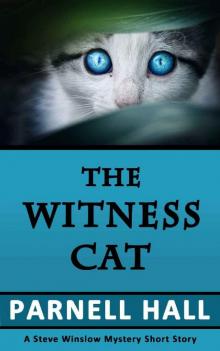 The Witness Cat (Steve Winslow Mystery)
The Witness Cat (Steve Winslow Mystery) With This Puzzle, I Thee Kill
With This Puzzle, I Thee Kill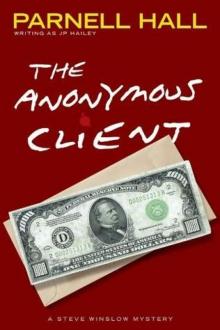 The Anonymous Client sw-2
The Anonymous Client sw-2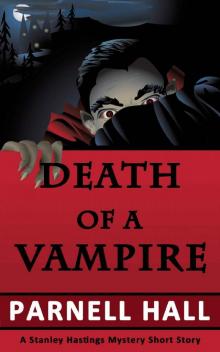 Death of a Vampire (Stanley Hastings Mystery, A Short Story)
Death of a Vampire (Stanley Hastings Mystery, A Short Story)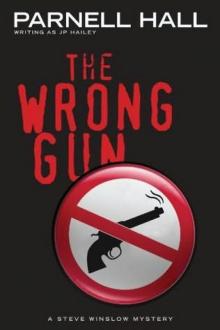 The Wrong Gun sw-5
The Wrong Gun sw-5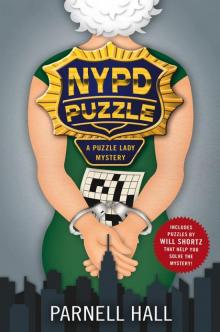 NYPD Puzzle
NYPD Puzzle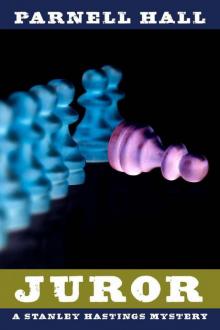 6 Juror
6 Juror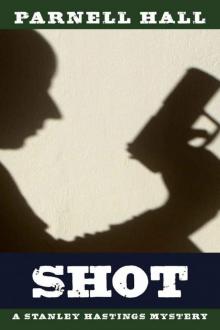 07-Shot
07-Shot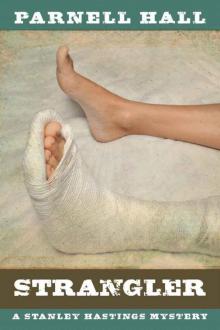 04-Strangler
04-Strangler 02-Murder
02-Murder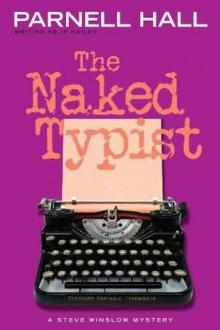 SW04 - The Naked Typist
SW04 - The Naked Typist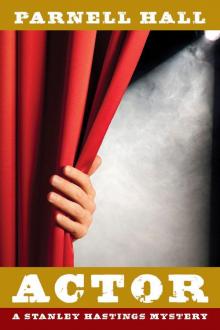 Actor
Actor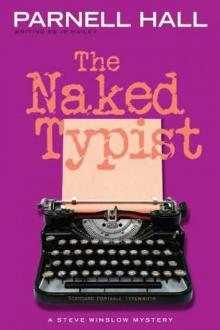 The Naked Typist sw-4
The Naked Typist sw-4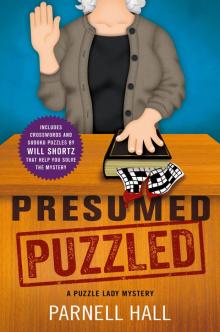 Presumed Puzzled
Presumed Puzzled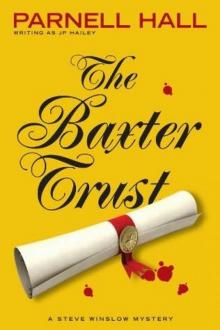 SW01 - The Baxter Trust
SW01 - The Baxter Trust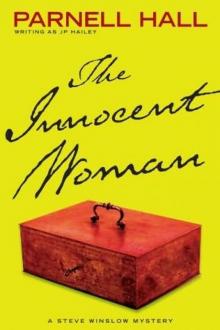 SW06 - The Innocent Woman
SW06 - The Innocent Woman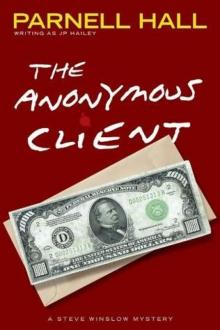 SW02 - The Anonymous Client
SW02 - The Anonymous Client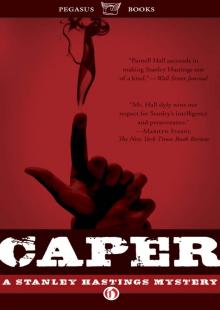 Caper
Caper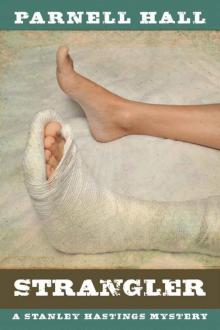 4 Strangler
4 Strangler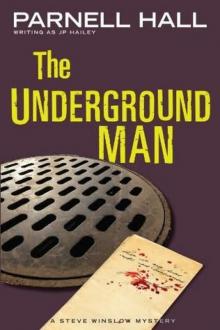 The Underground Man sw-3
The Underground Man sw-3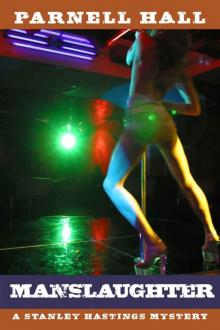 Manslaughter (Stanley Hastings Mystery, #15)
Manslaughter (Stanley Hastings Mystery, #15)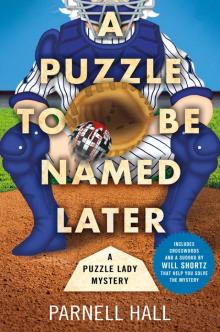 A Puzzle to Be Named Later--A Puzzle Lady Mystery
A Puzzle to Be Named Later--A Puzzle Lady Mystery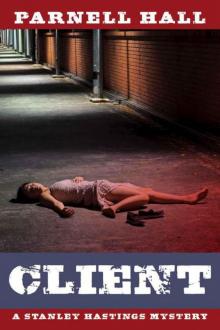 05-Client
05-Client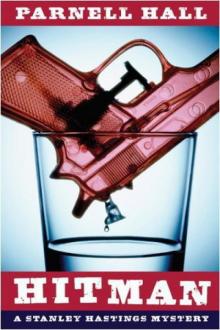 16 Hitman
16 Hitman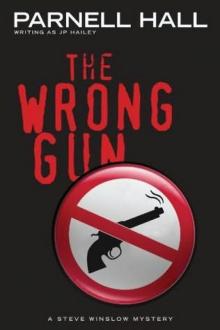 SW05 - The Wrong Gun
SW05 - The Wrong Gun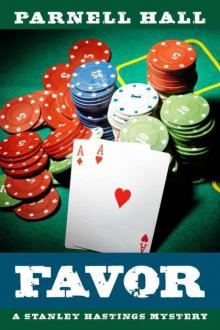 3 Favor
3 Favor Last Puzzle & Testament
Last Puzzle & Testament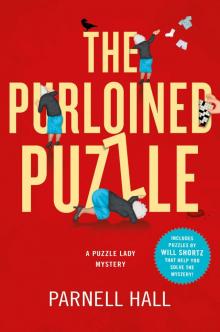 The Purloined Puzzle
The Purloined Puzzle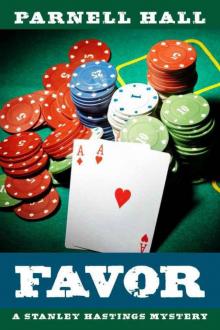 03-Favor
03-Favor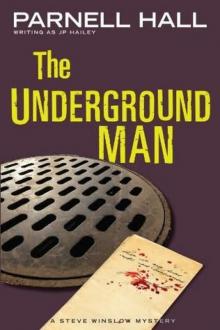 SW03 -The Underground Man
SW03 -The Underground Man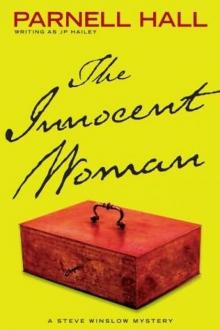 The Innocent Woman sw-6
The Innocent Woman sw-6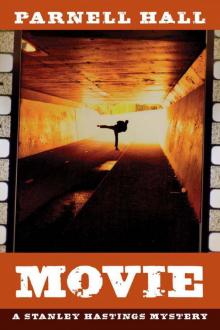 10 Movie
10 Movie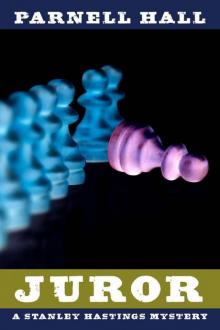 06-Juror
06-Juror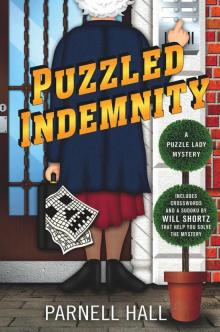 Puzzled Indemnity
Puzzled Indemnity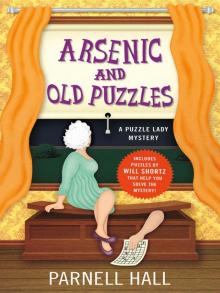 Arsenic and Old Puzzles
Arsenic and Old Puzzles Dead Man's Puzzle
Dead Man's Puzzle Safari
Safari $10,000 in Small, Unmarked Puzzles
$10,000 in Small, Unmarked Puzzles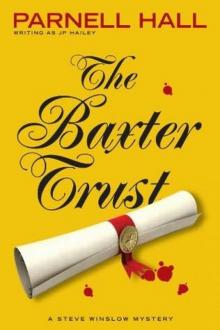 The Baxter Trust sw-1
The Baxter Trust sw-1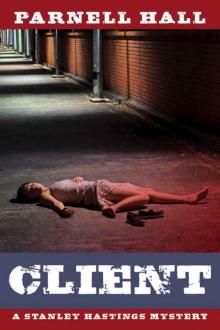 5 Client
5 Client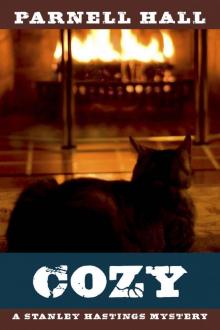 Cozy (Stanley Hastings Mystery, #14)
Cozy (Stanley Hastings Mystery, #14)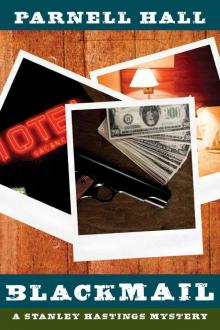 Blackmail
Blackmail A Puzzle in a Pear Tree
A Puzzle in a Pear Tree A Clue for the Puzzle Lady
A Clue for the Puzzle Lady Clicker Training (Stanley Hastings Mystery, A Short Story)
Clicker Training (Stanley Hastings Mystery, A Short Story)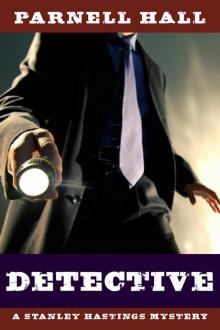 Detective (Stanley Hastings Mystery Book 1)
Detective (Stanley Hastings Mystery Book 1) 13 Suspense
13 Suspense